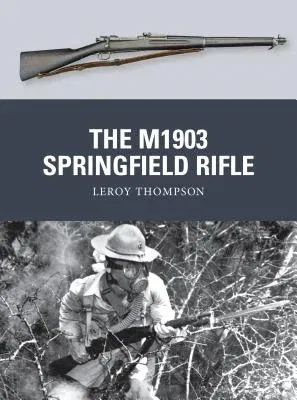Developed to replace the Model 1892 Krag-Jørgensen rifle, the Model 1903
Springfield was a five-shot bolt-action rifle that introduced the .30-06
cartridge - the standard US round until the introduction of the 7.62mm
NATO cartridge - and gave the US infantryman a durable, magazine-fed
weapon so renowned for its accuracy that it remained in service as a
sniping rifle for decades after it was superseded by the M1 Garand in
1937. Extensively used in World War I, the M1903 Springfield saw
widespread combat in World War II and Korea; even during the Vietnam
War, US Marine snipers still used M1903 Springfield rifles, and it
remains in service today with drill teams, color guards, and ceremonial
units. When large numbers of M1903 Springfields were sold off to
American civilians it became a popular hunting rifle and one of the most
collected US military firearms due to the large number of variations.
During World War I, US troops developed a formidable reputation for
marksmanship aided by the accuracy of the M1903 Springfield, which was
widely used in that conflict alongside the Pattern 1917 Enfield. World
War II saw the introduction of the M1903A3, which changed the rear sight
so that it was closer to that of the M1 Garand, to allow easier training
of troops who might be issued either rifle. The M1903A4 sniper version
was used during World War II and later. Many infantry squads that were
equipped with the Garand also had at least one "grenadier" who retained
an '03 for launching rifle grenades.
Illustrated with specially commissioned color artwork and drawing upon
veterans' recollections, this is the engaging story of the M1903
Springfield, an iconic rifle prized for its lethal accuracy that
equipped US and other troops for much of the 20th century.

